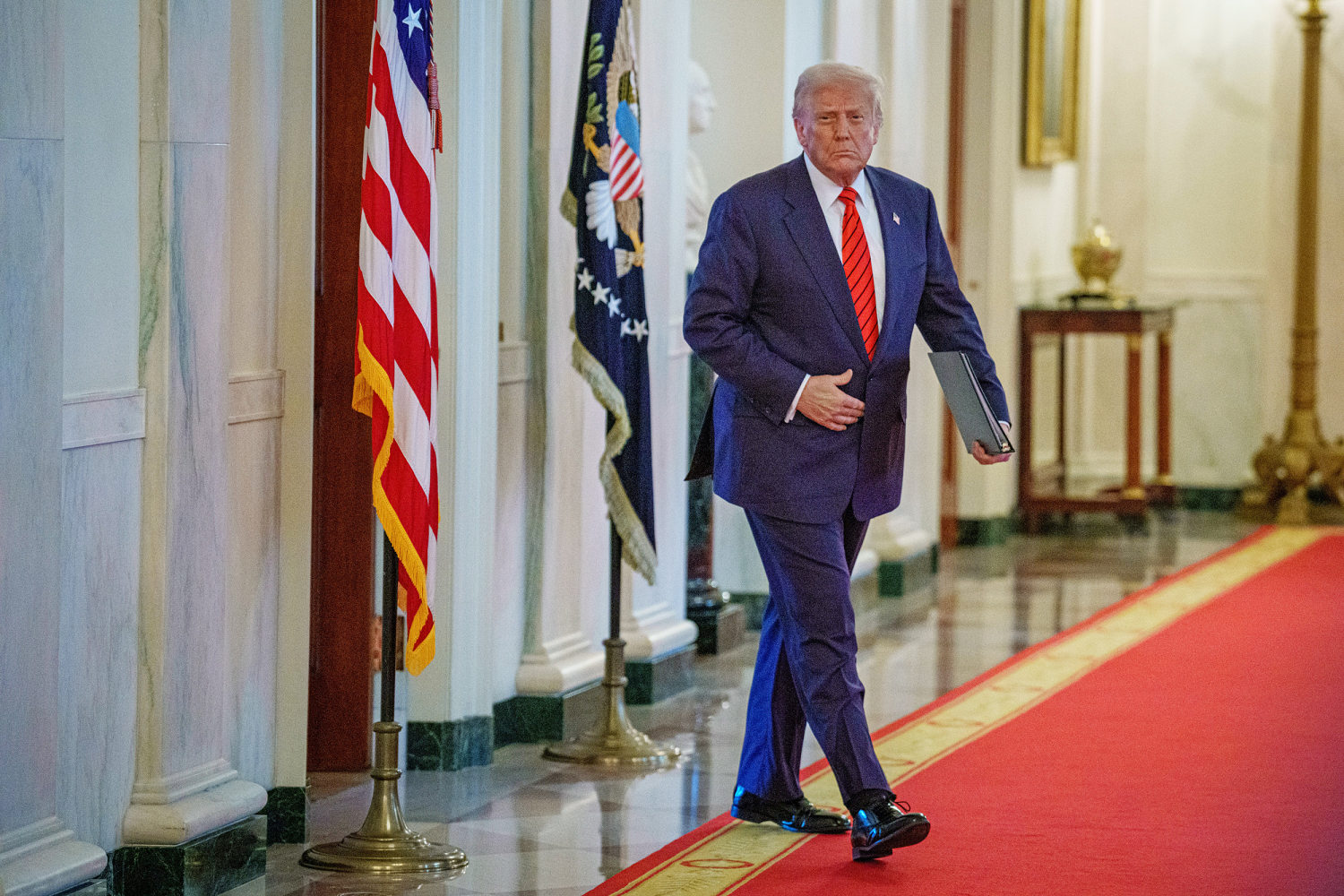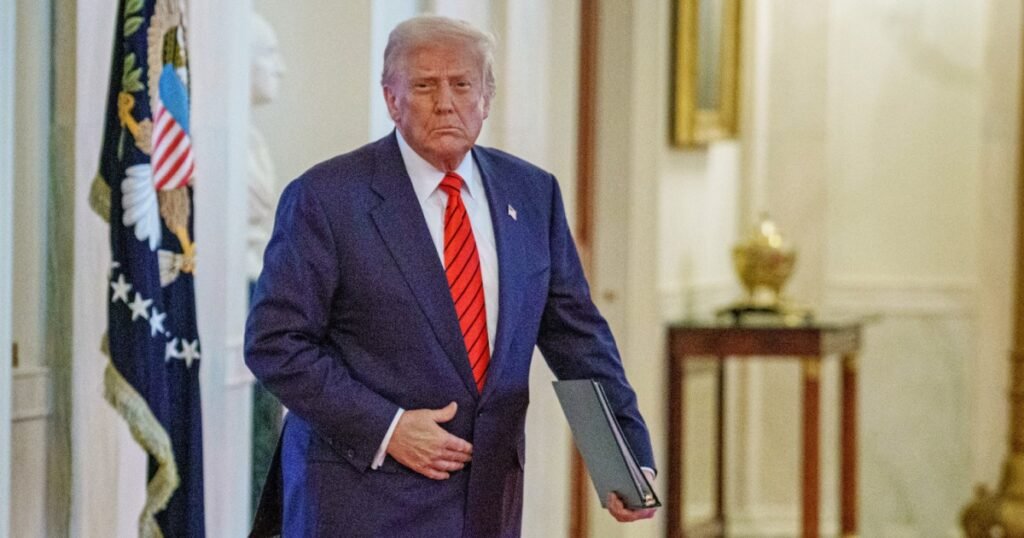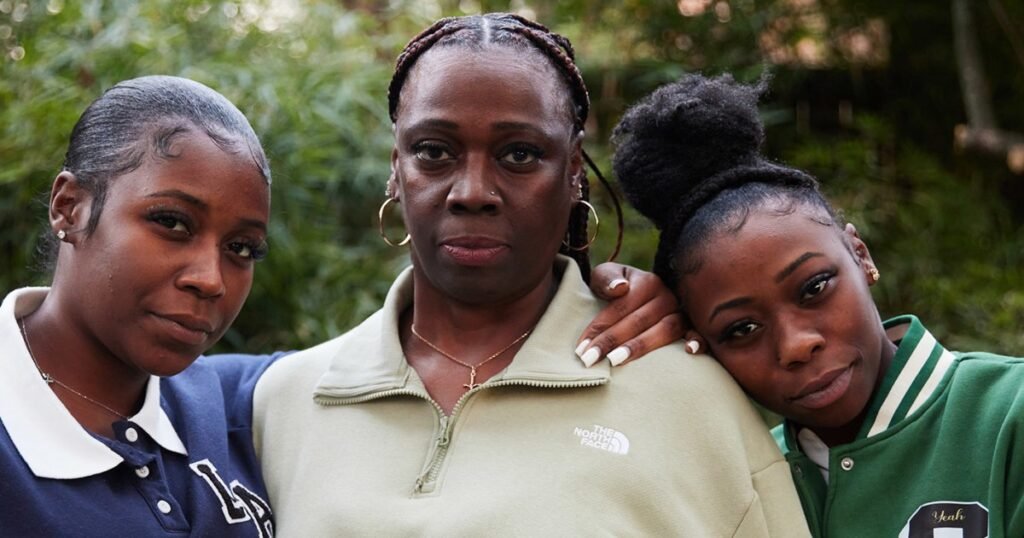
The courts are slamming the brakes on some of President Donald Trump’s efforts to quickly trim and transform the federal government.
In his first weeks in office, Trump has signed more than 50 executive orders aimed at reshaping the government, from targeting birthright citizenship to changing how transgender inmates are housed. Government agencies have also used the orders to try to freeze federal funding nationwide and offer buyouts to the bulk of government employees.
The flood of orders has led to over two dozen lawsuits to date, and a number of court decisions halting — at least temporarily — some of Trump’s actions. At least three such decisions were released Thursday.
And on Thursday night, a pair of unions sued the Trump administration over its efforts to dismantle the U.S. Agency for International Development.
Here’s a look at cases the courts that have halted:
DOGE
Retirees and union members filed a legal challenge to the Treasury Department’s decision to allow staffers from Elon Musk’s Department of Government Efficiency, or DOGE, access to the federal government’s massive payment and collections system — and the personal data housed in it.
Arguing that the move violated federal privacy laws, they’re seeking an order barring DOGE from accessing the data, and requiring the return of any data that’s already been harvested. The Justice Department has agreed to restrict some access to the systems pending the results of a full hearing on the matter on Feb. 24.
In a related case this week, a group of union members filed suit seeking to block the Trump-created DOGE from accessing confidential information from the Department of Labor.
Another challenge is in the pipeline: A coalition of 12 states announced plans Thursday to file suit over DOGE’s access to the Treasury system as well.
Government buyouts
As part of Trump’s effort to downsize the federal workforce, the U.S. Office of Personnel Management recently announced a mass “deferred resignation” program that would allow workers to resign now but get paid through September. The stated deadline to accept the offer was Thursday night, and a senior administration official said earlier that day that 60,000 people had accepted.
Labor unions for federal workers sued to stop the program, arguing that the Trump administration does not have legal authority to offer such buyouts.
A federal judge in Boston blocked the government Thursday from implementing the buyouts at federal agencies until at least Monday, when he’ll have a hearing on the issue.
One consequence of the judge’s order is that it also extended the amount of time workers have to respond to the resignation offer.
“We are grateful to the Judge for extending the deadline so more federal workers who refuse to show up to the office can take the Administration up on this very generous, once-in-a-lifetime offer,” White House press secretary Karoline Leavitt told NBC News in a statement.
Birthright citizenship
One of the most controversial of Trump’s executive orders was one called “Protecting the Meaning and Value of American Citizenship,” which seeks to restrict birthright citizenship. It seeks to limit such citizenship to people who have at least one parent who is a U.S. citizen or permanent resident, and states that those born to parents who are in the country legally, but temporarily, will no longer be automatically guaranteed citizenship, including those with high-skill work visas and student visas.
The order is being challenged in a number of lawsuits that have been filed across the country. Federal judges in Maryland and Washington state this week issued nationwide preliminary injunctions blocking the order from taking effect.
In his ruling Thursday, U.S. District Judge John C. Coughenour wrote, “Citizenship by birth is an unequivocal constitutional right.”
The judge in Seattle wrote, “The President, cannot change, limit or qualify this Constitutional right via an executive order.”
The Justice Department appealed the Seattle decision Thursday night.
Funding freeze
A pair of federal judges temporarily blocked a federal aid funding freeze directed by the Trump administration in response to his executive orders.
A memo from the Office of Management and Budget memo last week directed federal agencies to “temporarily pause all activities related to obligation or disbursement of all Federal financial assistance, and other relevant agency activities that may be implicated by the executive orders” pertaining to topics like foreign aid and DEI programs.
The memo said the pause would allow the administration to review which programs are “consistent” with Trump’s agenda.
The vaguely worded memo was withdrawn after widespread confusion about what aid would be halted, and reports of people and organizations unable to access systems to receive federal aid.
In a Friday ruling, Rhode Island U.S. District Judge John J. McConnell signed off on a temporary restraining order after the memo was withdrawn, noting that Leavitt had tweeted to the public that “This is NOT a rescission of the federal funding freeze. It is simply a rescission of the OMB memo.”
The judge found the White House’s actions appeared to violate the law. “Federal law specifies how the Executive should act if it believes that appropriations are inconsistent with the President’s priorities — it must ask Congress, not act unilaterally,” he wrote.
Before U.S. District Judge Loren AliKhan issued her ruling in the separate Washington, D.C. case on Monday, she noted that even after the memo was withdrawn there were “individuals who are still having issues accessing funding platforms.”
“That indicates to me the memo is still doing some work,” she said.
Transgender inmates
Another of Trump’s orders targeted transgender inmates, saying the federal Bureau of Prisons was now required to ensure that “males are not detained in women’s prisons.”
That led to two lawsuits filed on behalf of four transgender women prisoners who were scheduled to be transferred to men’s facilities. They argued that the order constituted cruel and unusual punishment because they would be at serious risk of violence and sexual assault in a facility for men.
Two judges blocked the inmates from being moved.
In a suit involving three of the prisoners, U.S. District Judge Royce Lamberth in Washington, D.C., concluded that “the public interest in seeing the plaintiffs relocated immediately to male facilities is slight at best.”
Lamberth noted that “by the defendants’ own admission, there are only about sixteen male-to-female transgender women housed in female penitentiaries, including the plaintiffs.” He said the government had not even alleged the three prisoners “present any threat to the female inmates housed with them, or that this threat cannot be managed locally by prison staff.”
Source link



